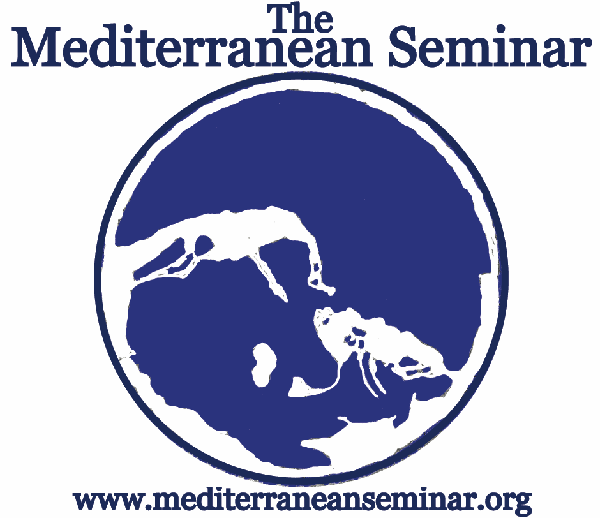Appel à contribution pour le prochain Mediterranean Seminar qui se tiendra les 10-11 avril prochain à Cleveland (USA) intitulé: Faking It – Forgery, Fraud, Deception and Dissimulation in the Pre-Modern Mediterranean.
Cet appel comporte deux volets: un appel à communication « classique », et un appel à présenter un texte à discuter (article en cours, synopsis de livre, chapitre de thèse). Le texte est envoyé préalablement aux participants et fera l’objet d’une discussion collective.
Le Mediterranean Seminar est un cycle de rencontres qui se tient quatre fois par an aux USA, dans une université différente, et qui réunit des spécialistes de la Méditerranée. La session de printemps 2025, qui se tiendra à Case Western Reserve University (Cleveland), est co-organisée par le laboratoire TELEMME, avec le soutien du Fonds d’Intervention Recherche (FIR) d’Aix-Marseille Université.
La date d’envoi des propositions est fixée au 6 janvier 2025. La manifestation se déroulera en anglais. Les candidatures de doctorant-es et post-doctorant-es seront valorisées.
Mediterranean Seminar Spring 2025 Workshop (10 & 11 April: Cleveland)
The Mediterranean Seminar is seeking proposals for works-in-progress and roundtable position papers for the 2024 Spring Workshop, “Faking It – Forgery, Fraud, Deception and Dissimulation in the Pre-Modern Mediterranean” to be hosted by Case Western Reserve University and Aix-Marseille Université, and held on the campus of CWRU in Cleveland, OH, Tuesday 10 April & Friday 11 April 2025. The seminar will feature two keynote presentations by Karoline Cook (Royal Holloway, University of London) and Stefania Tutino (UCLA), three workshopped papers and three roundtable conversations.
Fake news, fake flags, fake papers… All were legion in the premodern Mediterranean. Whether or not this place of islands and enclaves, cultural archipelagos and fragmented sovereignties was especially conducive to dissimulation, it is an ideal place for studying different forms of forgery, fraud and self-fashioning. “Faking It!” invites specialists from across disciplines to think expansively about the historical motives, methods, milieus and meaning of imposture in and around the Inner Sea. Falsifying specimens, counterfeiting coinage, claiming expertise, feigning faith, concealing origins all implicated questions of identity, knowledge, authenticity, legitimacy and authority. So did the acts of unmasking, debunking and exposing. What can the construction and contestation of lies teach us about the premodern Mediterranean and vice versa?
Proposals are welcome from scholars of all ranks from across all disciplines of the Humanities, Arts, and Social Sciences, as are papers from the Sciences, that engage in the broadest sense with social, historical and cultural aspects of the Mediterranean language, linguistics, literature, culture, society, art, and social, economic and political history, as well as anthropology, sociology, and other related humanities and social science disciplines. Junior scholars, graduate students, contingent faculty, scholars of underrepresented communities, and those whose work engages with historiographically marginalized groups are particularly encouraged to apply. For this meeting we particularly encourage European scholars to apply.
Papers may address either specific case studies or larger historical or historiographical dynamics and apparatuses. Comparative, interdisciplinary, and methodologically innovative papers are of particular interest. Our Mediterranean is construed geographically as including southern Europe, the Near East and North Africa and stretching into the Black Sea and Central Asia, and the Red Sea and the western Indian ocean. While our primary laboratory is the premodern Mediterranean, we welcome proposals from across historical eras, as well papers which focus on other regions in which analogous or related processes can be observed.
For the workshop program, we invite abstracts (250 words) for unpublished in-progress articles or book or dissertation chapters relating directly or tangentially to dissimulation, fakery and forgery in the premodern Mediterranean. The deadline for workshop proposals is 6 January 2025 via this form. Successful applicants will submit a 35-page (maximum) double-spaced paper-in-progress for pre-circulation by 24 March 2025.
For the three roundtable conversations, we invite abstracts (±250 words) for position papers that respond to one of the prompts below. The deadline for application is 6 January 2025 via this form. Roundtable presenters will submit a 3-5 page “position paper” by 30 March 2025. Position papers are informal “op-ed” pieces with minimal scholarly apparatus.
1) Mediterranean Misrepresentations: In what ways was the Mediterranean social, cultural, political, religious and economic environment conducive to dissimulation? What was its impact?
2) Misrepresenting the Mediterranean: How has the Mediterranean past or Mediterranean culture been misrepresented, deliberately or not? What does this tell us about the Mediterranean or ourselves?
3) Masking and Unmasking: How did contemporaries see misrepresentation, fraud and forgery? In what contexts and how did they seek to control or encourage it to what effect? What do we learn from studying technologies of deception?
Applicants may apply for both a workshop and roundtable session (separate applications).
Given that only three workshop papers can be accepted, workshop applicants are encouraged also to apply for a roundtable (using a separate form). Applicants are welcome to indicate more than one roundtable topic if appropriate for their proposal.
The deadline for applications is 6 January 2025. Apply via this form. European scholars are encouraged to apply
To complete the form, you will need a (provisional) title and abstract (±250 words) of your proposed presentation, a prose biographical paragraph (±250 words), and a 2-page CV (pdf).
This is an in-person meeting only.
A separate call for non-presenting participants will go out in February.
This workshop is organized by Brian A. Catlos (University of Colorado Boulder), Thomas Glesener (Aix-Marseille Université), Sharon Kinoshita (University of California Santa Cruz), and Gillian Weiss (Case Western Reserve University). It is sponsored by Aix-Marseille Université and Case Western Reserve University, together with the Mediterranean Seminar and the CU Mediterranean Studies Group.
